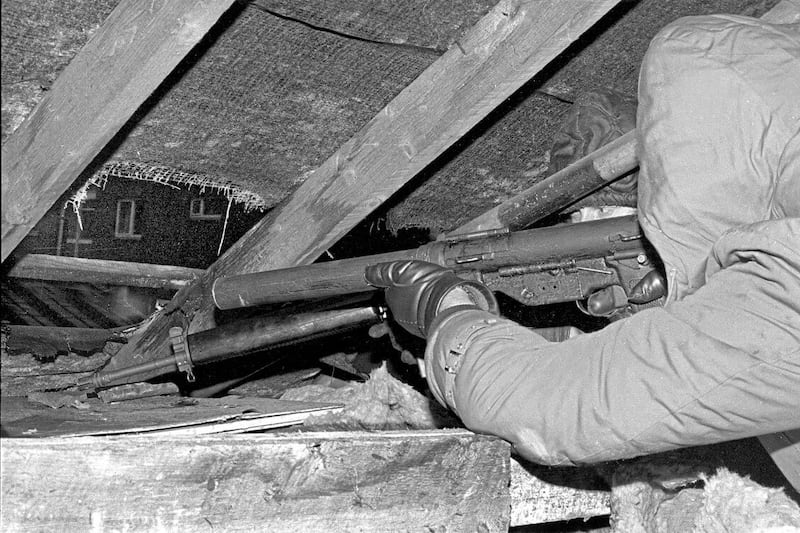Four suspects died while files were under consideration by the Public Prosecution Service (PPS) as part of the Operation Kenova investigation, it has emerged.
Freddie Scappaticci died last year while Kenova files were being assessed for prosecution, but now it has emerged he was not the only one to have passed away since 28 files relating to 35 people were given to the PPS in 2019.
Operation Kenova was established in 2016 to investigate the alleged activities of Scappaticci, a British army agent in the IRA, and those of former army and RUC intelligence handlers.
An interim report published last week found that the actions of Stakeknife probably cost more lives than he saved.
Answering criticism of the lack of prosecutions, Michael Agnew, deputy director of public prosecutions, revealed on Tuesday that “Mr Scappaticci wasn’t the only individual reported to the PPS who died before decisions could be taken”.
The news comes amid continuing criticism of the PPS that there has not been any prosecutions in relation to the probe.
Former Police Ombudsman Nuala O’Loan said on Monday it is “hard to comprehend that there wasn’t a single prosecution”, adding that there was “compelling evidence”.
She said she believes it “takes far too long to make a prosecution decision...we have a very dysfunctional prosecution service”.
In response, a PPS spokeswoman told The Irish News that its role is to “independently and impartially take decisions as to prosecution”.
“It does this by applying the test for prosecution which can only be met if the available evidence provides a reasonable prospect of conviction,” she said.
“Whilst an investigator will have a view on the strength of evidence submitted on any file, all decisions as to prosecution are taken independently by prosecutors.”
The spokesperson said the initial tranche of files was submitted to the PPS in late 2019 and further files from 2020 to 2023, which were “unprecedented in their scale and complexity”.
“PPS took decisions on 35 individuals reported across 28 files,” she said.
“Evidence submitted for consideration concerned 14 murders and 15 abductions as part of a range of offences including false imprisonment, serious assaults and misconduct in public office.
“The volume of material generated by investigators included over 1,000 witness statements and approximately 12,000 documents comprising more than a million pages.”

She said “one individual was reported as a suspect in all but one of these files and it was considered that the strength of the evidence would be best analysed by prosecutors after all relevant files had been considered together”.
“Consideration of all files was at an advanced stage at the time of the death of this individual,” she added.
“Following the death, the PPS was able to approach decision-making in a phased manner and these issued between December 2023 and February 2024.”
She said they “fully accept that PPS decision-making processes would have been completed more quickly if sufficient resource had been available” but to suggest decisions “could be taken easily and within a short time is wholly inaccurate and unrealistic, regardless of the resource available”.
“As regards commentary that the evidence was compelling and cases would likely have been prosecuted in England and Wales, the PPS does not accept such an assertion,” she added.
“As has been explained, there were significant evidential challenges which led to decisions being taken that the evidential test for prosecution was not met in any case.”







